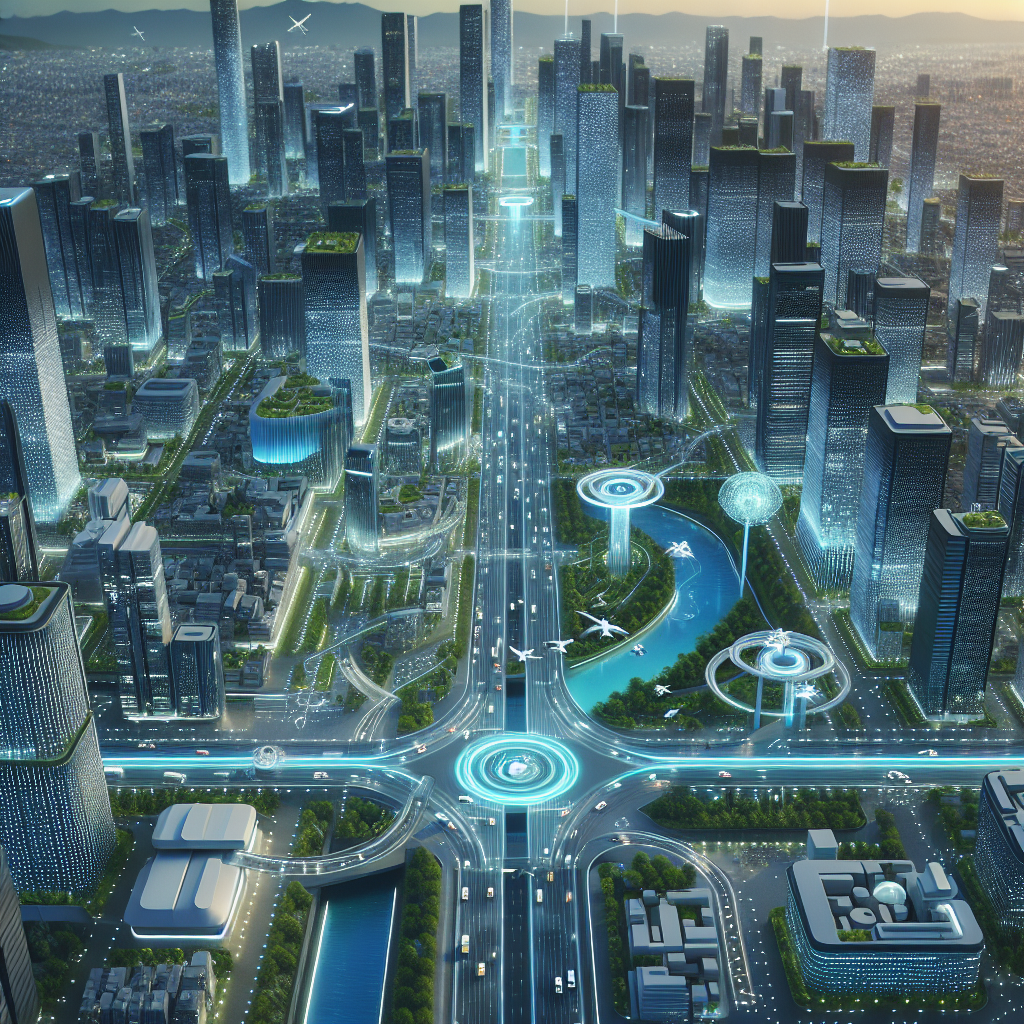The concept of smart cities is no longer a futuristic dream—it’s becoming a reality in urban centers around the world. As technological advancements continue to surge, cities are leveraging these innovations to improve the quality of life, optimize resources, and enhance urban living through smart infrastructure. But what does the future hold for smart city infrastructure? Let’s explore.
What is Smart City Infrastructure?
Smart city infrastructure refers to the integration of advanced technologies and IoT (Internet of Things) to create a connected urban environment. This involves utilizing data and digital technologies to manage city assets and resources effectively.
Key Components of Smart City Infrastructure
- Sensors and IoT Devices: Collect and transmit data from various city elements like traffic lights, public transport, and waste management systems.
- Big Data and Analytics: Process large amounts of data to extract actionable insights for better decision-making.
- Connectivity: Robust wireless and wired networks to ensure seamless data flow.
- Cloud Computing: Store and analyze data on the cloud for scalability and efficiency.
- Artificial Intelligence: Implement AI for predictive analysis, automation, and smooth city operations.
Transforming Urban Mobility
One of the most impactful applications of smart city infrastructure is in urban mobility. Smart transportation systems are being developed to reduce traffic congestion, enhance public transit, and promote sustainable transport options.
Advanced Traffic Management
By using sensors and real-time data analytics, city planners can monitor traffic patterns and implement dynamic traffic signals to alleviate congestion. Smart parking solutions can guide drivers to available spaces, reducing time spent searching for parking.
Public Transport Optimization
Smart public transit systems provide real-time updates on bus and train schedules, improve route planning, and optimize fleet management to ensure timely and efficient services.
Electric Vehicles and Charging Infrastructure
To promote green mobility, cities are increasing investments in electric vehicle (EV) infrastructure, including more EV charging stations, and integrating renewable energy sources.
Enhancing Urban Living
Smart city infrastructure aims to make urban living more comfortable, safe, and sustainable. From smart homes to waste management, the possibilities are endless.
Smart Homes and Buildings
Homes and buildings equipped with IoT devices can automate lighting, heating, and security systems, making them more energy-efficient and secure. Smart grids can optimize energy consumption and manage supply from renewable sources.
Efficient Waste Management
Smart waste management systems use sensors to monitor trash levels and optimize collection routes, reducing operational costs and environmental impact.
Public Safety
AI-powered surveillance cameras can enhance public safety by monitoring high-risk areas and alerting authorities to potential threats. Smart street lighting improves visibility and reduces energy usage.
Environmental Sustainability
One of the primary goals of smart city infrastructure is to create environmentally sustainable urban environments. This involves deploying technologies that reduce carbon footprints and promote renewable energy usage.
Air Quality Monitoring
Sensors placed throughout the city monitor air quality in real-time, helping authorities to take immediate action when pollution levels rise.
Water Management
Smart water management systems can detect leaks, monitor water quality, and optimize water usage, ensuring a sustainable supply for urban populations.
Energy Efficiency
Implementing smart grids and energy-efficient building practices can significantly reduce energy consumption in cities, lowering carbon emissions and reliance on fossil fuels.
The Road Ahead
The future of smart city infrastructure is promising, with continuous advancements in technology paving the way for more connected, efficient, and livable urban centers. Governments, businesses, and citizens will need to collaborate to overcome challenges and fully realize the potential of smart cities.
Challenges to Overcome
- Data Privacy: Ensuring the security and privacy of citizens’ data is paramount.
- Funding: Significant investments are required to build and maintain smart city infrastructure.
- Interoperability: Different systems and technologies need to work seamlessly together.
- Public Awareness: Educating citizens about the benefits and uses of smart technologies.
As we step into an era where urban living is defined by smart infrastructure, the vision of futuristic cities is becoming clearer. By embracing technology, we can build cities that are not only smart but also sustainable and resilient.

